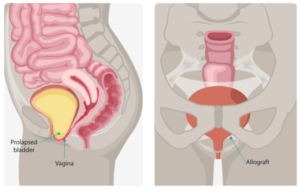Who warn does not need much alcohol to drastically increase the risk of cancer

Who warn does not need much alcohol to drastically increase the risk of cancer
The World Health Organization has published a new research that connects moderate alcohol consumption with an increased risk increase significantly to develop certain cancers, including colon cancer and breasts. This study comes from the WHO’S INTERNATIONAL AGENCY for research on cancer (IARC), which also finds an increased risk in the person described as a mild drinker.
The new study focused on Canada, where researchers connected alcohol consumption with one of seven new cancer cases last year. Of the 7,000 case studies related to alcohol use, the researchers said that 24 percent of them were breast cancer, 20 percent were colon cancer, 15 percent were anal cancer, and 13 percent of liver and oral cancer.
Health risks caused by mild and moderate alcohol consumption – defined as no more than two drinks per day – has become a controversial subject. Many studies in recent months have linked this type of alcohol with an increased risk involving everything, starting from the liver to brain health.
The researchers behind this new study stated that all alcoholic consumption came with risk, at least when focusing on cancer-related alcohol. Study of Dr. Jurgen Rehm said, for example, that one glass of wine every day has been associated with a 6 percent increase in the risk of breast cancer for women.
Co-author of other studies, Dr. Kevin Shield, described about how to drink alcohol can increase your risk of developing several types of cancer:
Alcohol causes cancer in various ways. The main mechanism of how alcohol causes cancer is through DNA repair disorders. Additional routes include chronic alcohol consumption that results in liver cirrhosis, and alcohol which leads to disregulating sex hormones, which lead to breast cancer. Alcohol also increases the risk of head and neck cancer for smokers because it increases the absorption of carcinogens from tobacco.
This finding is mainly related to massive light in alcohol consumption reported during pandemic. Past research found that many people began to drink more when locking occurred, highlighting one aspect of the potential for long-term public health consequences that could manifest long after the pandemic ended.
The World Health Organization has published a new research that connects moderate alcohol consumption with an increased risk increase significantly to develop certain cancers, including colon cancer and breasts. This study comes from the WHO’S INTERNATIONAL AGENCY for research on cancer (IARC), which also finds an increased risk in the person described as a mild drinker.
The new study focused on Canada, where researchers connected alcohol consumption with one of seven new cancer cases last year. Of the 7,000 case studies related to alcohol use, the researchers said that 24 percent of them were breast cancer, 20 percent were colon cancer, 15 percent were anal cancer, and 13 percent of liver and oral cancer.
Health risks caused by mild and moderate alcohol consumption – defined as no more than two drinks per day – has become a controversial subject. Many studies in recent months have linked this type of alcohol with an increased risk involving everything, starting from the liver to brain health.
The researchers behind this new study stated that all alcoholic consumption came with risk, at least when focusing on cancer-related alcohol. Study of Dr. Jurgen Rehm said, for example, that one glass of wine every day has been associated with a 6 percent increase in the risk of breast cancer for women.
Co-author of other studies, Dr. Kevin Shield, described about how to drink alcohol can increase your risk of developing several types of cancer:
Alcohol causes cancer in various ways. The main mechanism of how alcohol causes cancer is through DNA repair disorders. Additional routes include chronic alcohol consumption that results in liver cirrhosis, and alcohol which leads to disregulating sex hormones, which lead to breast cancer. Alcohol also increases the risk of head and neck cancer for smokers because it increases the absorption of carcinogens from tobacco.
This finding is mainly related to massive light in alcohol consumption reported during pandemic. Past research found that many people began to drink more when locking occurred, highlighting one aspect of the potential for long-term public health consequences that could manifest long after the pandemic ended.







